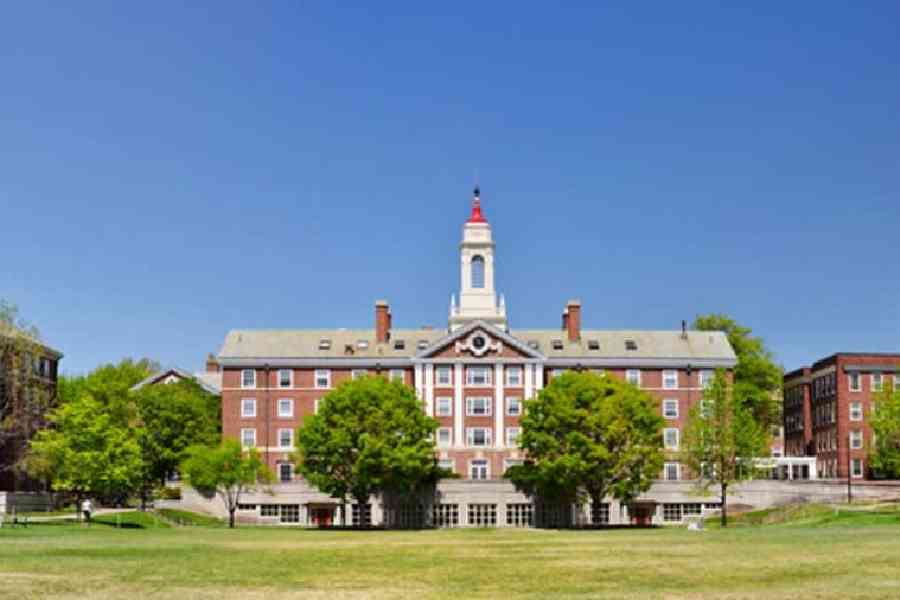It’s been called affirmative action for the rich: Harvard’s special admissions treatment for students whose parents are alumni, or whose relatives donated money. And in a complaint filed on Monday, a legal activist group demanded that the federal government put an end to it, arguing that fairness was even more imperative after the Supreme Court last week severely limited race-conscious admissions.
Three Boston-area groups requested that the education department review the practice, saying the college’s admissions policies discriminated against Black, Hispanic and Asian applicants, in favour of less qualified white candidates with alumni and donor connections.
“Why are we rewarding children for privileges and advantages accrued by prior generations?” asked Ivan Espinoza-Madrigal, executive director of Lawyers for Civil Rights, which is handling the case. “Your family’s last name and the size of your bank account are not a measure of merit, and should have no bearing on the college admissions process.”
The complaint from liberal groups comes days after a conservative group, Students for Fair Admissions, won its Supreme Court case. And it adds to accelerating pressure on Harvard and other selective colleges to eliminate special preferences for the children of alumni and donors.
The Office for Civil Rights of the Education Department, which would review the complaint, may already be gearing up to investigate. In a statement after the Supreme Court decision, President Biden said he would ask the department to examine “practices like legacy admissions and other systems that expand privilege instead of opportunity”.
A spokeswoman for Harvard, Nicole Rura, said the school would have no comment on the complaint, but reiterated a statement from last week: “As we said, in the weeks and months ahead, the university will determine how to preserve our essential values, consistent with the court’s new precedent.”
Colleges argue that the practice helps build community and encourages donations, which can be used for financial aid.
A poll released last year by the Pew Research Center found that an increasing share of the public — 75 per cent — believed that legacy preferences should not be a factor in who was admitted to college.
And the call for eliminating legacy and donor preferences has grown recently across the political spectrum.
Representative Alexandria Ocasio-Cortez, Democrat of New York, tweeted that if the Supreme Court “was serious about their ludicrous ‘colourblindness’ claims, they would have abolished legacy admissions, aka affirmative action for the privileged.”
On The Faulkner Focus, a Fox News programme, Senator Tim Scott, Republican of South Carolina and a presidential candidate, said, “One of the things that Harvard could do to make that even better is to eliminate any legacy programs where they have preferential treatment for legacy kids.”
Peter Arcidiacono, a Duke University economist who has analyzed Harvard data, found that a typical white legacy applicant’s chances of being admitted increase five-fold over a typical, white non-legacy applicant.
Even so, eliminating legacy preferences at Harvard, the study said, would not offset the loss in diversity if race-conscious admissions were also eliminated.
In its decision on race-conscious admissions, some Supreme Court justices criticised legacy admissions. Justice Neil M. Gorsuch, in an opinion concurring with the court’s majority, took aim at preferences for the children of donors and alumni, saying: “They are no help to applicants who cannot boast of their parents’ good fortune or trips to the alumni tent all their lives. While race-neutral on their face, too, these preferences undoubtedly benefit white and wealthy applicants the most.”
In her dissenting opinion, Justice Sonia Sotomayor referred to legacy admissions, arguing that continuing race-based preferences was only fair in light of the fact that most of the pieces in the admissions puzzle “disfavour underrepresented racial minorities”.
While Colorado adopted a law in 2021 banning legacy admissions in public universities, legislation in Congress and several other states has gained little traction.
A New York bill filed last year was opposed by the state’s private school association, the Commission on Independent Colleges and Universities, which includes highly selective colleges such as Columbia, Cornell and Colgate.
In Connecticut, where lawmakers held a hearing on the issue last year, Yale was among the private schools that came out in opposition. In written testimony, Jeremiah Quinlan, Yale’s dean of undergraduate admissions, called the proposed ban a government intrusion into university affairs.
Selective private universities, in particular, have been slow to eliminate legacies, with MIT, Johns Hopkins University and Amherst College among a few elite schools that do not use them.
In a news release last month describing its autumn class, the first since the college eliminated legacy preferences, Amherst announced that the number of first-generation students in the school’s fall class would be higher than ever — 19 per cent — while the number of students who were legacies had declined to 6 per cent. Previously, legacies had made up 11 per cent of the class.
New York Times News Service










